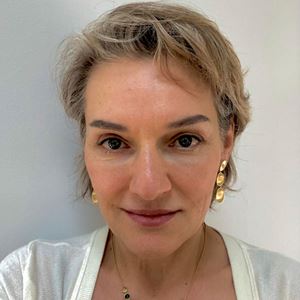Maria Panchenko
Profile
Maria Panchenko was professor of pathology and laboratory medicine at Boston University Medical School, where she taught and conducted research for 25 years. She was the sole primary investigator running a lab funded by a multi-million dollar grant from the National Institute of Health. She is the author of dozens of peer reviewed articles in areas including epigenetics, cell cycle, chromatin, and protein chemistry. Her research on colon cancer resulted in a discovery of a novel genetic marker.
Education
Moscow State University
Doctor of Philosophy in Biochemistry
Moscow State University
Master of Arts in Biochemistry
Moscow State University
Bachelor of Arts in Biology
Awards and Accomplishments
Awarded and served as sole principal investigator on multiple grants. Selected recent grants and awards:
- R01DK087910 NIH NIDDK ($1,422,600)
“Histone Acetyl Transferase HBO1 in kidney epithelial cell cycle” - IRG-72-001-32 American Cancer Society ($60,000)
"Role of Jade-1 in the HAT HBO1 complex" - SDG 0535485T American Heart Association ($180,000)
“Jade-1 in hypoxic injury of Renal Epithelial Cells” - Pediatric Kidney Research Award National Kidney Foundation
“Jade-1 in ischemic kidney injury” - Mallory Award from Department of Pathology and Lab Medicine, BMC
“Cell cycle regulator JADE1 protein: a novel marker of colon cancer in humans”
Research
Dr. Panchenko's lab was investigating pathways of cell cycle, cell differentiation, and chromatin signaling. Specifically, she studied how chromatin factor and histone acetyl transferase complexes control the fine balance between epithelial cell proliferation, differentiation, and ultimately tissue homeostasis. Dr. Panchenko's lab discovered epigenetic pathways that directly regulate mammalian cell cycle progression and contribute to tissue regeneration or cancer. Experimental systems to examine her hypothesis included a variety of in vitro methods, cell cultures, as well as in vivo genetically modified mice models, and human tissues from the pathology tissue bank. The human tissues included specimens of colorectal and other cancers of epithelial origins. This research resulted in several discoveries, including identification of a novel colon cancer marker.
Selected Publications
Panchenko MV “Structure, function and regulation of Jade Family PHD Finger 1 (JADE1)”. GENE 2016
Invited review (PMID: 27155521)
Siriwardana, NS, Meyer RD, and Panchenko MV. The novel function of JADE1S protein in cytokinesis of epithelial cells. Cell Cycle 2015 (PMID: 26151225)
Editorial in News&Views. “Cut or NoCut: the Role of JADE1S in Regulating Abscission Checkpoint” by Prekeris R. Cell Cycle 2015
Siriwardana NS, Meyer R, Havasi R, Dominguez I, Panchenko MV. “Cell cycle-dependent
chromatin shuttling of HBO1-JADE1 histone acetyl transferase (HAT) complex”.
Cell Cycle 2014 (PMID: 24739512)
Editorial in News&Views. “HBO1:JADE1 at the cell
cycle chromatin crossroads” by Calvi BR. Cell Cycle 2014
Havasi A, Haegele JA, Gall JM, Blackmon S, Ichimura T, Bonegio RG, Panchenko MV.
Histone acetyl transferase (HAT) HBO1 and JADE1 in epithelial cell regeneration. (PMID:
23159946) Am J Pathol 2013
Foy RL, Song IY, Chitalia VC, Cohen HT, Saksouk N, Cayrou C, Vaziri C, Cote J, and
Panchenko MV. Role of Jade-1 in the histone acetyltransferase (HAT) HBO1 complex. J Biol
Chem 2008 (PMID: 18684714)
Selected as Paper of the Week by the Editor
Courses
World Disease
Biochemistry
Biochemistry Labs
